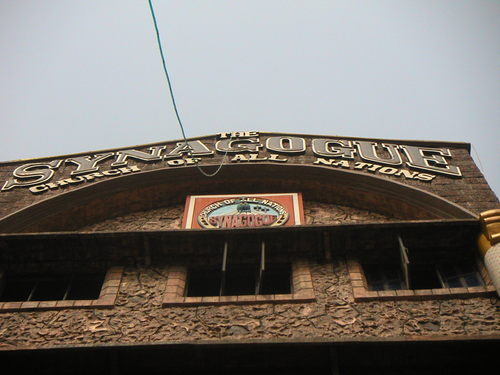The hotel business in a small underdeveloped rural community in the state of Lagos, Nigeria is unusually growing because of religious tourism. Ikotun can hardly compare to the neighboring metropolitan area of Lagos in terms of technology, population, and income level; but there is one attraction that is drawing in foreigners from around the world – The Synagogue, Church Of All Nations (SCOAN).
According to a Nigerian hotel booking website, hotels.ng, areas surrounding the popular church, Ikotun and Alimosho, have a total of 110 hotels. The church founded by T.B. Joshua is considered by many to be a Mecca (of some sort) for miracle-seeking Christian pilgrims. UK based news website the Guardian cites that The SCOAN attracts more weekly visitors than the Buckingham Palace and the Tower of London combined.
Many countries endowed with tourist attractions and natural wonders generate their economic wellbeing from the tourism industry. One would wonder why the Nigerian government, given the dire economic situation in the country, has not seemed to have taken advantage of the great potential economic impact the church has on the tourism industry in Nigeria. Despite the fact that the government is not necessarily taking steps to capitalize on the church’s burgeoning influence, it was revealed that six out of every ten visitors that come to Nigeria visit The SCOAN.
Religious tourism, through The SCOAN, has revealed that despite the Ikotun and Alimosho areas being known to be indigent neighborhoods that are in the rural outskirts of Lagos; they have been attracting more foreign tourists than the more affluent Victoria Island and Ikeja. This can be seen from the growing number of hotels in the Ikotun and Alimosho areas, for example Lagos’ business hub, Yaba, which accommodates various foreign investors to Nigeria, has 48 hotels; whereas the less opulent Ikotun has a staggering 56 hotels and Alimosho 54. As a tool to attract more customers, hotels in Ikotun list The SCOAN as a tourist attraction in the area.
Ultimately, the Nigerian government should look to other potential sources of revenue for the country’s economy, such as the tourism industry, and show more of a commitment to improving the physical infrastructure of formally marginalized neighborhoods that are now proving to be tourist centers, as is the case with Ikotun.




 Premier League
Premier League